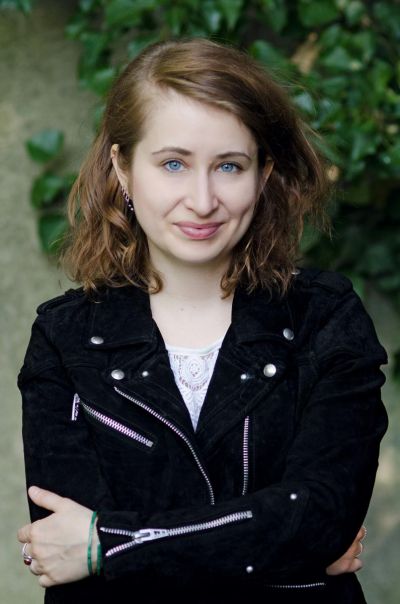The journalist Jan Aleksander Karon

Another topic Karon has discovered is something he calls “zeitgeist criticism”. He believes it is important to challenge when too many people agree on an undifferentiated point of view. In June 2021, for example, Karon caused a stir with a personal essay in the Berliner Zeitung in which he criticised his own left-wing bubble. It is clear: Although Karon often believes that the goals of his “woke generation” are sound, he considers the premises and the nature of the discourse to be highly questionable. It bothers him that the discourse is dominated by an almost exclusively bourgeois milieu, using a tone somewhere between “doctoral dissertation and cult leader”, but pretending to speak for everyone. In Karon’s opinion, however, many people with foreign roots do not feel represented at all by such voices, nor do they feel recognised in their political and religious diversity. The reactions to the article reinforced his view.
Jan Karon also wants to break with the widespread cliché in left-wing circles that everyone with a migrant background sees Germany as a deeply unfair and racist country teeming with Nazis. “In my eyes, this homeland is not a nightmare”, says Karon, paraphrasing the title of an anthology called “Your Homeland Is Our Nightmare” (“Eure Heimat ist unser Albtraum”). Rather, Karon believes that Germany is first and foremost a haven of prosperity, freedom, and security and offers immigrants opportunities that they generally do not have elsewhere.
And yet Jan Karon himself grew up “anti-German”, he says, at least in the sense that German-Polish history gave him a reason to distrust patriotism and proved quite contradictory for his parents. The unimaginable horrors of Nazi rule and the Second World War were formative themes in Karon’s family, which meant that Karon struggled to identify with the country of his birth for a long time. “That has since changed”, he says. “I am grateful to this country for many things.” Karon describes Germany’s efforts to confront the past as unparalleled by international standards and sees it first and foremost as a tolerant and free country that offers opportunities. Nevertheless, he feels primarily Polish. “But now also German”, he says. “I have no problem saying that I love both countries, although they also give me a headache for various reasons and regardless of my origins.”
In Karon’s eyes, Poland has clearly developed economically for the better in recent decades. He travels to his parents’ old homeland at least once a year. “The Poles have also become more cosmopolitan”, he says, “and more adept at languages. Town centres are now modern, digitalisation has progressed, the infrastructure has been significantly improved and you can see that people are doing much better economically.”
On the other hand, like so many younger people, Karon is concerned about the increasing repression by the PiS party and the reactionary backlash in Poland. However, he would also like people in Germany to be more sensitive and have better historical knowledge about Poland. “You can’t make very accurate judgements about mentalities if you can’t put yourself in people’s shoes”, says Karon. “And this includes understanding how history, the economy, religion, the political system, and self-perception have shaped and continue to shape the people.” Karon recommends that the Poles give the Germans a chance and not let themselves be swayed by grudges and fear of being disparaged. He says: “Many Germans are interested in Poland if you give them a little encouragement. And they would be excited to get to know the country and its people better.”
Anselm Neft, July 2021
Jan Aleksander Karon on torial: https://www.torial.com/jan-a.karon

